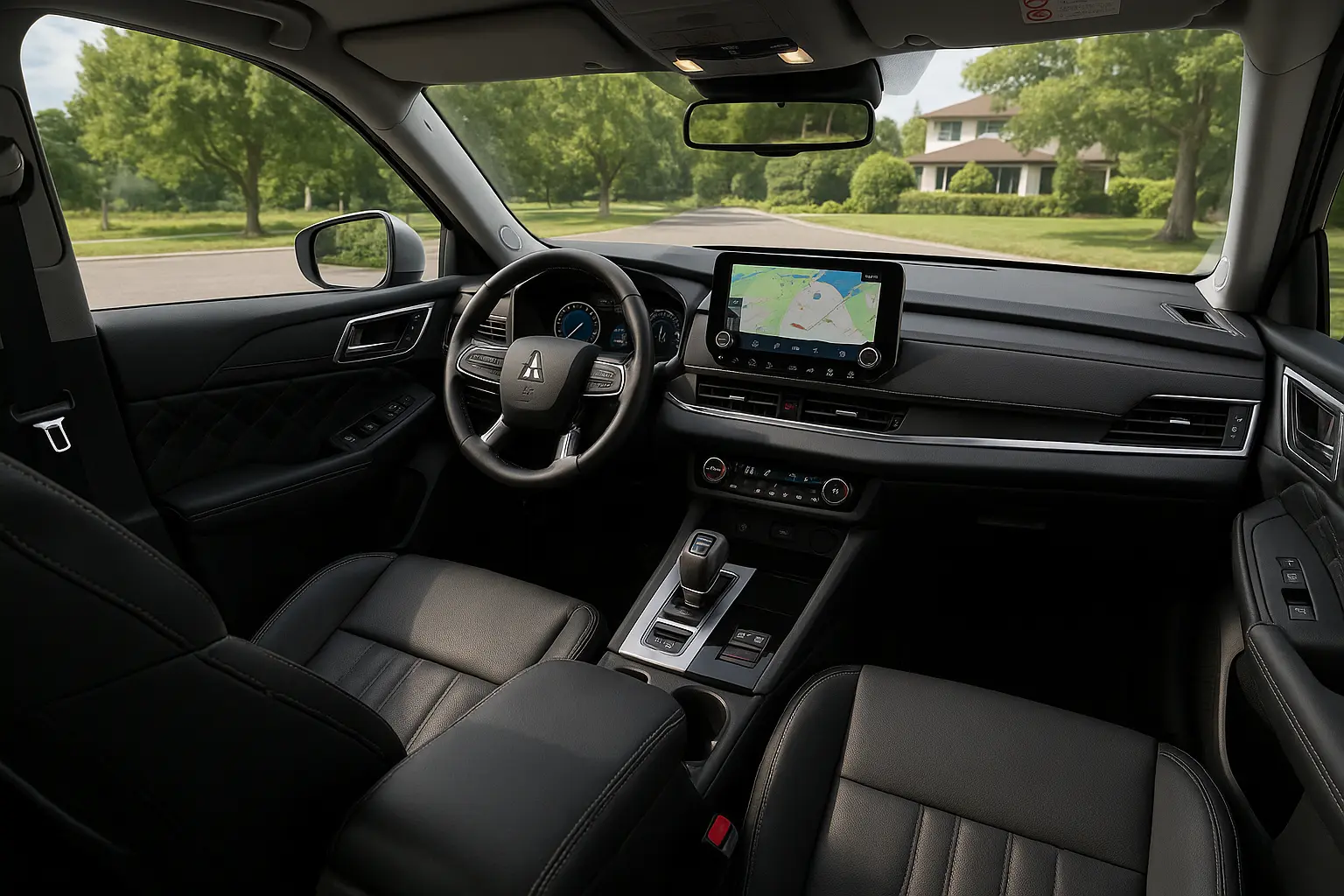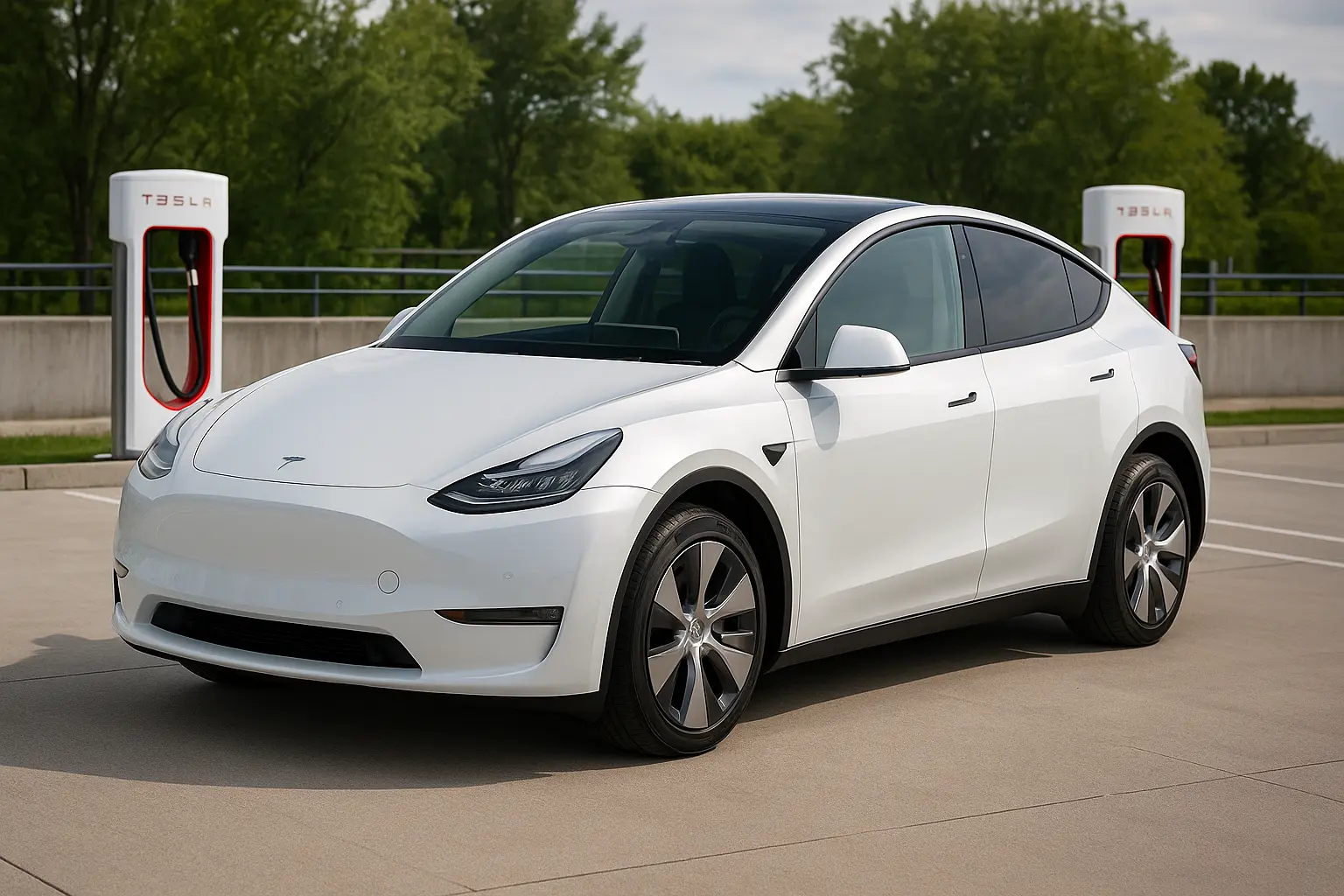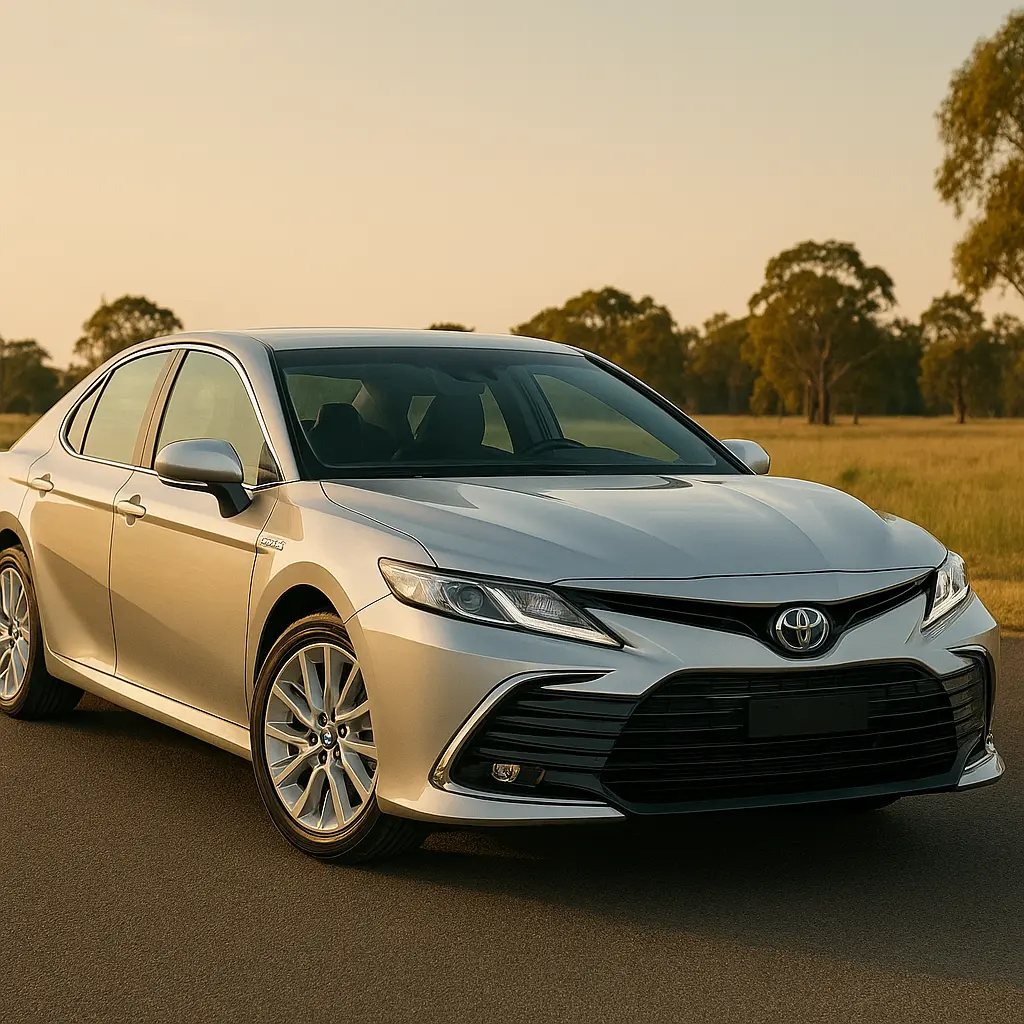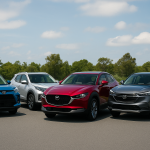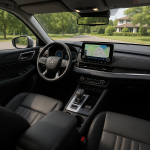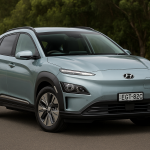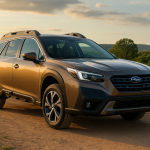The Mitsubishi Outlander has long been a familiar name on Australian roads. Known for its practicality, space, and value-driven design, the Outlander has grown into one of Mitsubishi’s best-selling models. With the 2025 edition, the spotlight falls heavily on its hybrid SUV credentials, updated features, and an increasingly competitive price point for Australian buyers.
This review dives deep into the Outlander’s latest generation, highlighting what makes it stand out in a crowded SUV market where rivals like the Toyota RAV4 Hybrid, Honda CR-V, Kia Sportage, and Hyundai Tucson Hybrid all fight for attention.
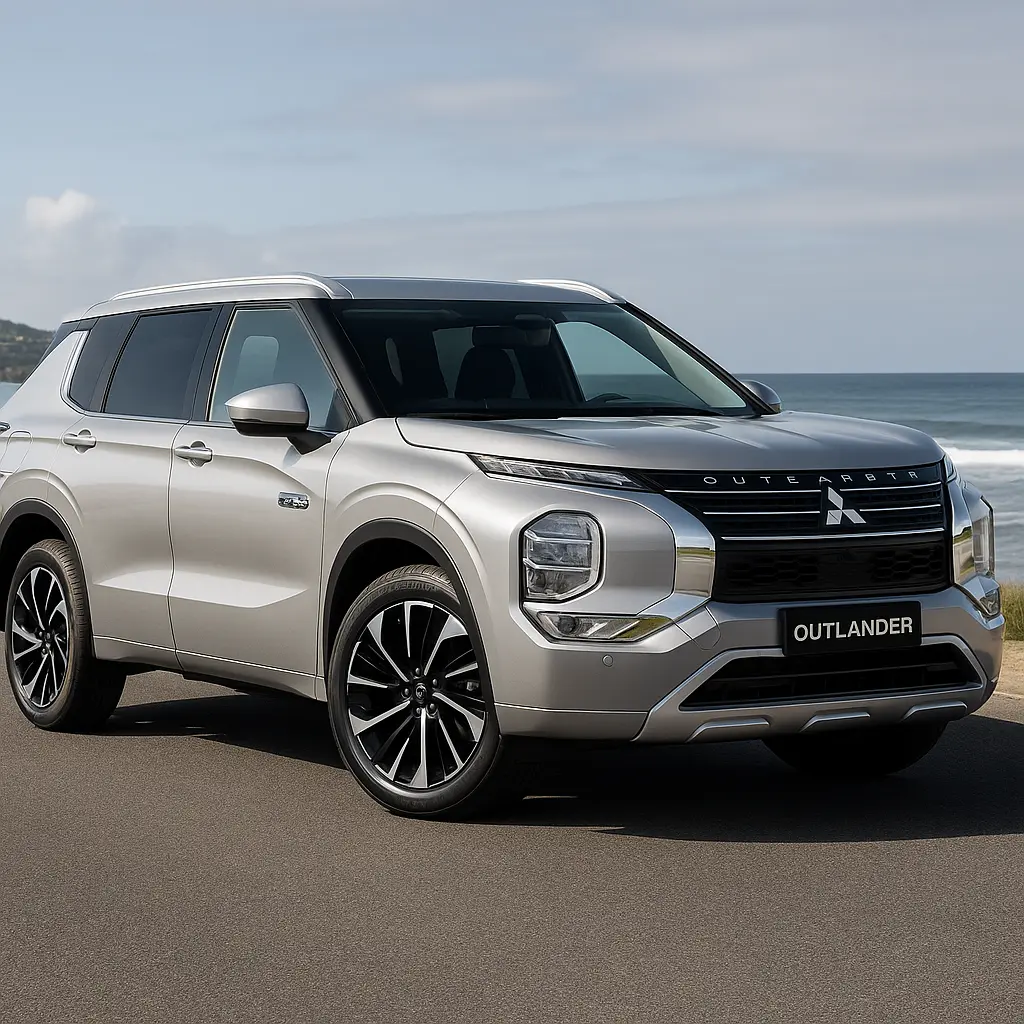
A Quick Overview of the 2025 Mitsubishi Outlander
Mitsubishi has positioned the Outlander as a family-friendly, technology-packed SUV that doesn’t forget about efficiency. In Australia, it’s offered with both petrol and plug-in hybrid (PHEV) variants, with the latter gaining a lot of traction among drivers keen to reduce fuel bills without sacrificing convenience.
The design is bolder, interior comfort has been elevated, and safety technologies have been upgraded to meet modern family demands. Whether you’re driving in city traffic, cruising on highways, or planning an off-road weekend adventure, the Outlander aims to tick all boxes.
Key highlights include:
Spacious 7-seat configuration in most trims
Plug-in hybrid (PHEV) with impressive efficiency and EV-only range
Generous warranty backing from Mitsubishi
Modern infotainment with wireless connectivity
Competitive pricing compared to rivals
Exterior Design – Bold, Muscular, and Modern
The first thing you’ll notice about the 2025 Outlander is how much more presence it has compared to older versions. Mitsubishi’s Dynamic Shield front design dominates the face, with bold chrome accents and slimmer LED headlights creating a premium impression.
From the side, the SUV boasts a high beltline and sharp creases, giving it a muscular stance. Alloy wheels ranging from 18 to 20 inches (depending on trim) add sportiness, while the rear is neatly finished with T-shaped tail lights and a wide stance.
Australians tend to value an SUV that looks tough yet stylish, and the Outlander fits this bill well. It doesn’t try to be flashy, but it’s no longer bland like some older generations.
Interior Comfort and Cabin Experience
Step inside, and you’ll find one of the most improved cabins Mitsubishi has produced in years. The Outlander now competes more confidently with Toyota and Mazda in terms of premium feel.
Highlights include:
7-seat layout: Ideal for families, though the third row suits kids more than adults.
Quality materials: Soft-touch panels, stitched surfaces, and better plastics.
Infotainment: 9-inch or 12.3-inch screen (depending on grade), with Apple CarPlay and Android Auto.
Digital cluster: Clear, high-resolution driver display in higher trims.
Comfort: Heated and ventilated front seats, dual-zone climate control, and roomy second-row seating.
Storage is generous with plenty of cubbies, cupholders, and boot space that’s competitive for the class.
Mitsubishi Outlander Hybrid – Plug-in Power Explained
One of the biggest talking points of the Outlander is its plug-in hybrid system (PHEV). This makes it stand out in the medium SUV market, especially as demand for eco-friendly models grows in Australia.
How it Works
Engine + Electric Combo: A 2.4-litre petrol engine works alongside dual electric motors.
Battery Capacity: Around 20kWh (larger than many rivals), offering up to 80 km EV-only driving range.
Hybrid Flexibility: Can switch between EV-only, hybrid, and battery-save modes.
Charging: Supports AC home charging and DC fast-charging (rare in the PHEV segment).
This flexibility is perfect for city commutes, where many owners can run their Outlander almost entirely on electric power, while still enjoying petrol backup for longer trips.
Performance and Driving Dynamics
The Outlander isn’t marketed as a sporty SUV, but it delivers a smooth, confident, and versatile drive.
Petrol Models: 2.5-litre 4-cylinder with CVT automatic. Adequate power for daily use.
PHEV Models: More refined, with instant torque from electric motors. Quieter ride in EV mode.
Drive Modes: Eco, Normal, Tarmac, Gravel, Snow, and Mud – giving flexibility for Australian conditions.
All-Wheel Drive (S-AWC): Standard in PHEV, optional in petrol trims, great for grip on wet roads or dirt tracks.
While it doesn’t match the sporty dynamics of the Mazda CX-5, the Outlander focuses on comfort, stability, and safety – traits Australian families value most.
Safety – ANCAP and Tech Features
Mitsubishi has loaded the Outlander with modern safety tech to keep pace with rivals:
ANCAP Rating: 5 stars (tested under strict protocols)
Active Safety: Adaptive cruise control, lane-keep assist, blind-spot monitoring, rear cross-traffic alert.
Parking: 360-degree camera, front/rear sensors, and automatic parking in some trims.
Airbags: 7 standard, covering all rows.
For Australian families, the reassurance of a high safety score combined with driver-assist features makes the Outlander especially appealing.
Technology and Features
Beyond safety, the Outlander’s tech suite is impressive.
Infotainment: Wireless smartphone connectivity, satellite navigation, premium audio in higher trims.
Convenience: Keyless entry, push-button start, power tailgate.
Connected Services: Remote app features like pre-conditioning cabin climate.
Compared to rivals, Mitsubishi has finally stepped up its infotainment game, catching up to Toyota and Hyundai.
Price and Value in Australia
The 2025 Mitsubishi Outlander comes in several trims, each balancing value and features. Pricing (approximate drive-away in Australia):
Outlander ES Petrol (FWD) – from $37,000
Outlander LS Petrol AWD – from $42,000
Outlander Aspire PHEV AWD – from $56,000
Outlander Exceed PHEV AWD – from $62,000
Outlander Exceed Tourer PHEV AWD – around $67,000
The hybrid SUV models command a premium, but for buyers who can charge at home, the long-term fuel savings and government EV incentives (in some states) make it worthwhile.
Mitsubishi Outlander vs Key Rivals
To understand where the Outlander fits, let’s compare it briefly with rivals:
Toyota RAV4 Hybrid: Australia’s best-selling SUV, more fuel efficient but lacks plug-in option.
Kia Sportage Hybrid: Stylish, tech-heavy, but smaller EV range.
Hyundai Tucson Hybrid: Similar tech, slightly pricier.
Mazda CX-5: Better driving dynamics, but no hybrid option yet.
The Outlander PHEV stands out for its long EV range and DC fast-charging – rare features in this segment.
Pros and Cons of the Mitsubishi Outlander
Pros
Spacious 7-seat option
Long EV-only driving range in PHEV
Excellent safety and tech features
Competitive pricing for features offered
Mitsubishi’s generous 10-year warranty (with conditions)
Cons
Third row tight for adults
Petrol engine lacks punch compared to turbo rivals
PHEV price premium is steep if you don’t charge often
Some interior plastics still feel budget in lower trims
Ownership, Warranty, and Running Costs
Mitsubishi continues to offer one of the most attractive ownership packages in Australia:
Warranty: 10 years / 200,000 km (with capped-price servicing at Mitsubishi dealers).
Servicing: Intervals every 12 months or 15,000 km.
Running Costs: PHEV drastically lowers fuel bills if charged daily.
Insurance costs sit in the middle of the SUV pack, with hybrid variants slightly higher due to repair costs.
Who Should Buy the Mitsubishi Outlander?
The Outlander suits a wide range of buyers:
Families who want a versatile 7-seat SUV with modern tech.
Eco-conscious drivers who want a hybrid but aren’t ready to go full EV.
Regional drivers needing AWD for mixed road conditions.
Value seekers who appreciate Mitsubishi’s warranty and ownership costs.
Final Verdict – Is the Outlander Worth It?
The 2025 Mitsubishi Outlander hybrid SUV successfully blends family practicality, advanced safety, and genuine eco credentials. It doesn’t try to be the sportiest SUV, but for Australian buyers, it offers one of the best combinations of space, features, warranty, and hybrid efficiency.
If you’re weighing the Outlander against the Toyota RAV4 Hybrid or Kia Sportage Hybrid, the Outlander’s plug-in hybrid capability and long EV range give it a unique edge.
For families who want an SUV that’s ready for school runs, road trips, and even occasional off-road adventures, the Mitsubishi Outlander is a well-rounded choice that justifies its place among Australia’s best-selling SUVs.
Leave a comment
Your email address will not be published. Required fields are marked *


